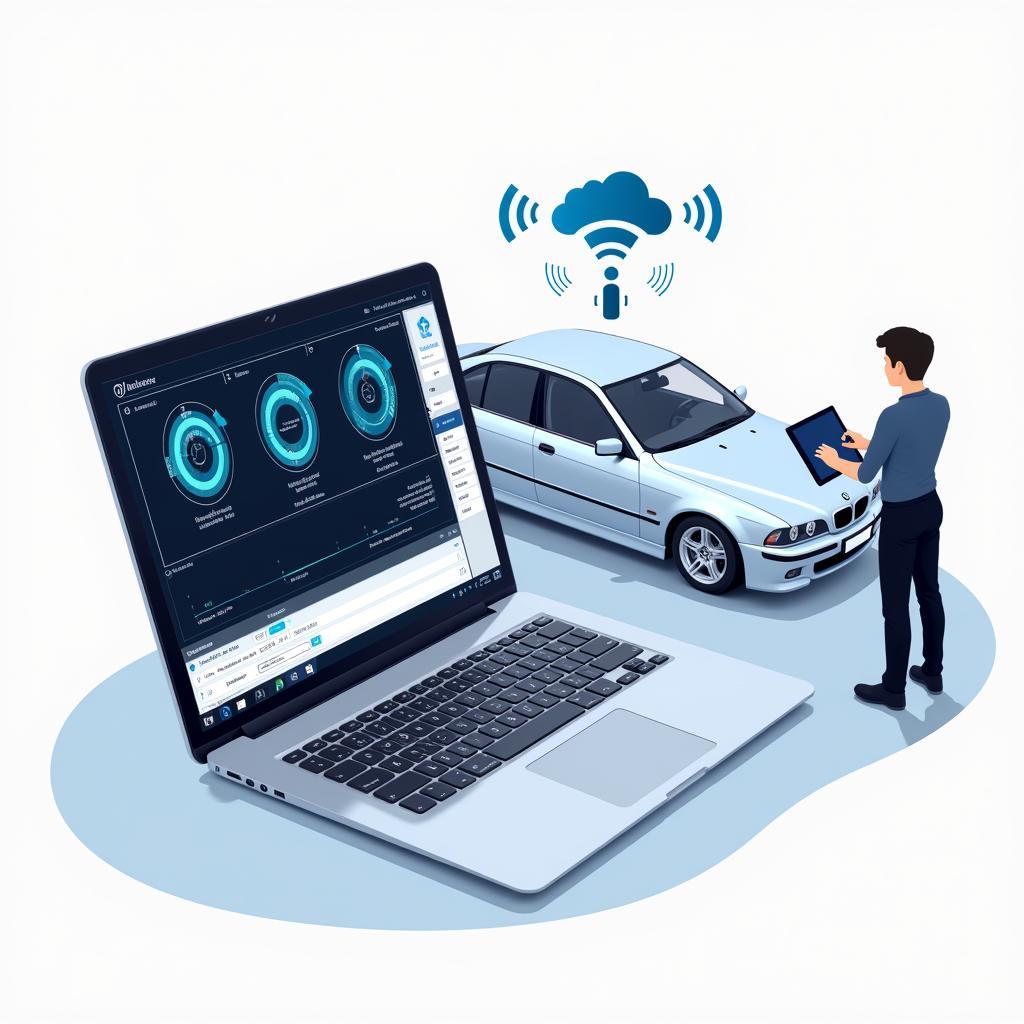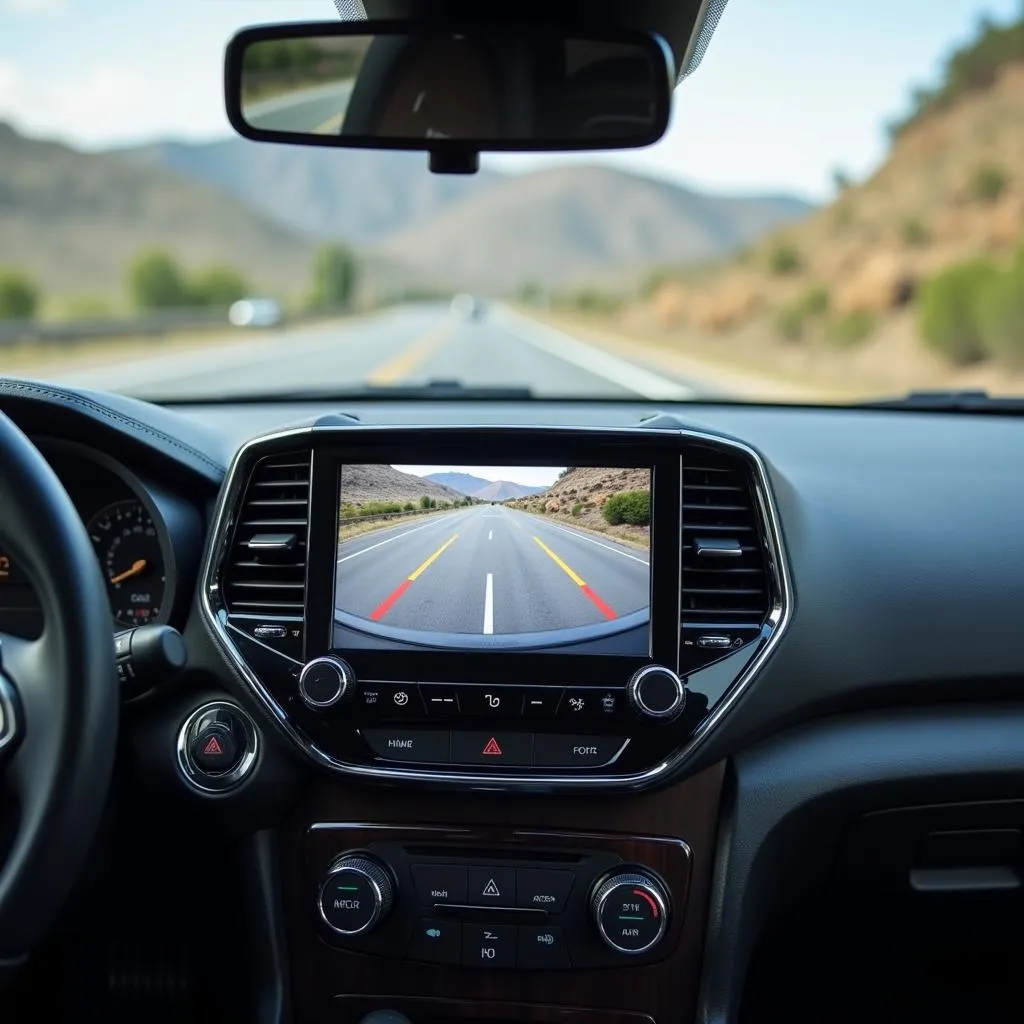The brake warning light on your BMW E39 is a vital safety feature, illuminating on your dashboard to alert you of potential issues within your braking system. Ignoring this warning could lead to decreased braking performance and dangerous driving situations. This comprehensive guide will delve into the common causes behind the E39 brake warning light and provide insightful solutions to help you get back on the road safely.
Common Causes of the BMW E39 Brake Warning Light
Several factors can trigger the brake warning light on your BMW E39. Identifying the root cause is crucial for effective troubleshooting and repair. Here are some of the most common culprits:
- Worn Brake Pads: Your E39’s brake pads are designed to wear down over time. Once they reach a certain thickness, a sensor triggers the brake warning light, signaling the need for replacement.
- Low Brake Fluid Level: Brake fluid is the lifeblood of your braking system, transmitting force from the brake pedal to the calipers. A leak in the system, or simply low fluid levels, can trigger the warning light and compromise braking performance.
- Faulty Brake Light Switch: The brake light switch is responsible for activating your brake lights when you press the pedal. A malfunctioning switch can disrupt this signal, often triggering the brake warning light in the process.
- ABS Sensor Issues: The Anti-lock Braking System (ABS) relies on sensors to monitor wheel speed and prevent wheel lockup during braking. A faulty or dirty ABS sensor can disrupt the system, leading to an illuminated warning light.
- Issues with the DSC System: The Dynamic Stability Control (DSC) system works in conjunction with your ABS to maintain vehicle stability. Problems within the DSC system, such as a malfunctioning steering angle sensor or yaw rate sensor, can also trigger the brake warning light.
Troubleshooting the Brake Warning Light
Before jumping into repairs, it’s essential to perform some basic checks:
- Check Your Parking Brake: Ensure the parking brake is fully disengaged. Sometimes, even a slight engagement can trigger the warning light.
- Inspect Brake Fluid Level: Locate the brake fluid reservoir under the hood and check the fluid level. If it’s below the minimum mark, carefully top it off with the appropriate DOT 4 brake fluid.
- Visual Inspection: Inspect your brake lines and hoses for any signs of leaks, cracks, or damage. Pay close attention to the connections near the calipers and master cylinder.
When to Seek Professional Help
If the basic checks don’t resolve the issue, or if you suspect a more complex problem like a faulty ABS sensor or DSC issue, it’s crucial to seek professional help.
“Ignoring a persistent brake warning light can be extremely dangerous,” says master BMW technician, Karl Schmidt. “Modern braking systems are intricate, and attempting complex repairs without the proper knowledge and tools can exacerbate the problem and compromise safety.”
Remote Diagnostic and Programming Solutions for BMW E39 Brake Issues
Advancements in automotive technology have paved the way for remote diagnostics and programming, offering a convenient and efficient approach to addressing BMW E39 brake problems.
Here’s how remote services can benefit you:
- Accurate Diagnostics: Specialized software can remotely access your E39’s onboard computer, retrieving fault codes and real-time data to pinpoint the exact cause of the brake warning light.
- Software Updates and Programming: Remote programming allows technicians to install the latest software updates for your E39’s braking system, potentially resolving glitches or improving performance.
- Convenience and Time Savings: Remote diagnostics eliminate the need for multiple trips to the workshop. A qualified technician can often diagnose and provide solutions without needing physical access to your vehicle.
 Remote Diagnostics for a BMW E39
Remote Diagnostics for a BMW E39
Conclusion
Addressing the brake warning light on your BMW E39 is not something to postpone. By understanding the potential causes, performing basic checks, and seeking professional assistance when necessary, you can ensure the safety and reliability of your braking system. Embrace the advancements in remote diagnostics and programming to experience a new level of convenience and efficiency in maintaining your BMW E39.

